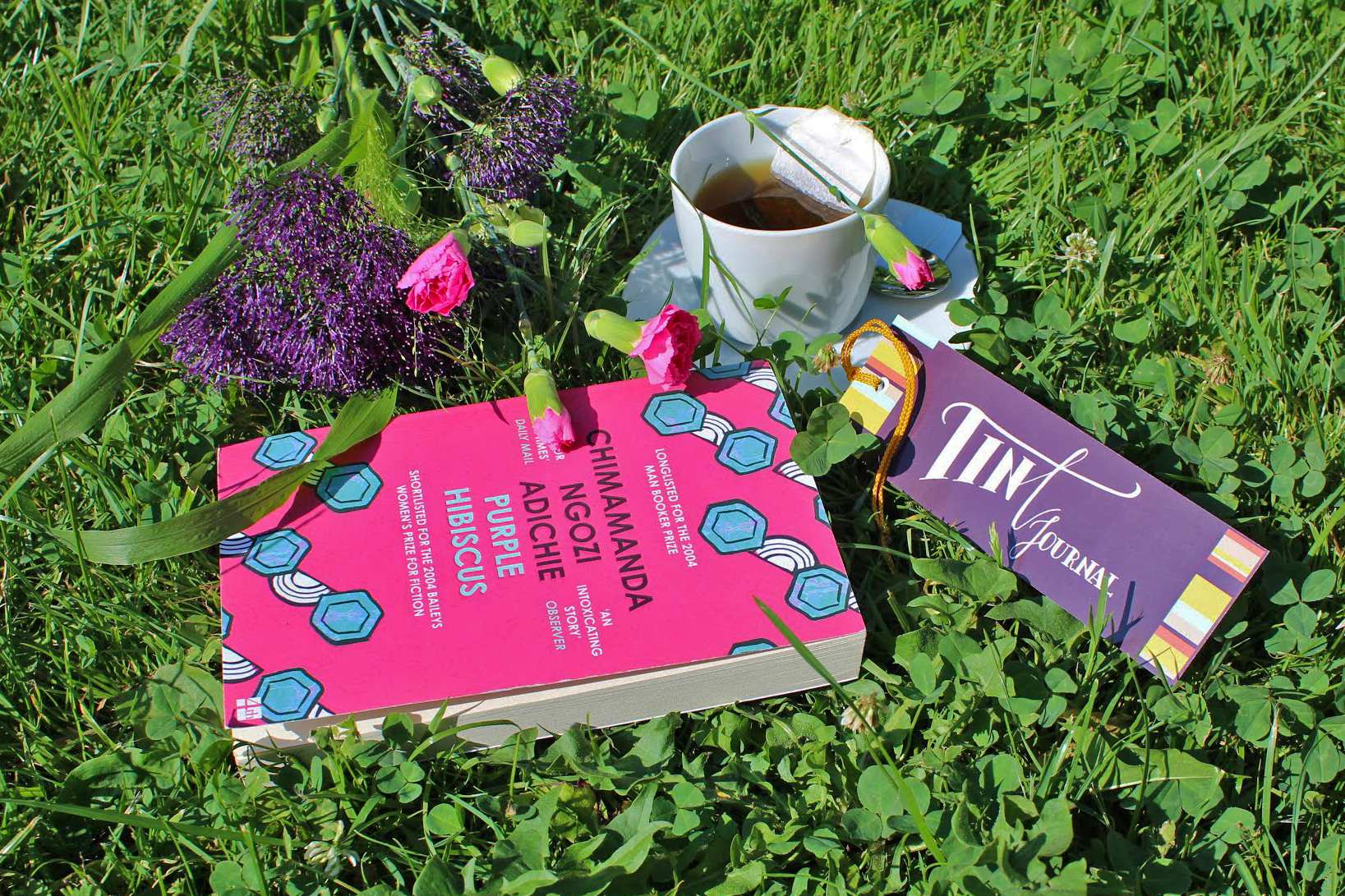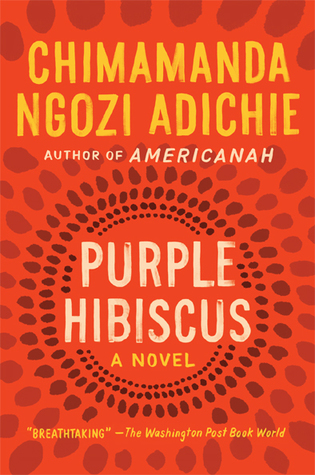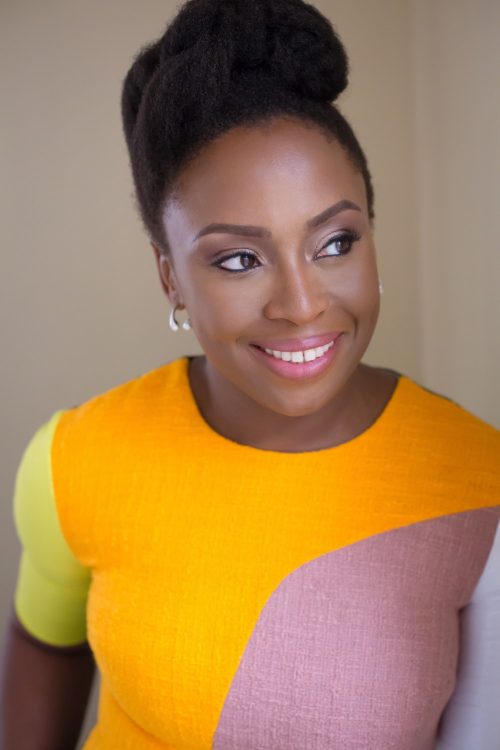Published June 18th, 2019
Review
by Andrea Färber

A story about family, culture and religion: This book review on the novel Purple Hibiscus lets you dive into the story of 15-year-old Kambili, the main protagonist, to learn about Igbo culture, gender roles and much more.

It can often be a struggle to dive into an unknown culture with zero previous background. When I read the first pages of this book, the apprehension of the unknown — the question of whether I should have looked into information first to understand the to me foreign world I was going to dive into next — lingered at the back of my mind. My worries were for nothing. Steadily, the novel introduced me to a new culture that I had never paid much attention to before, and I did not struggle once.
Purple Hibiscus (2003), Nigerian ESL author Chimamanda Ngozi Adichie’s first novel, is told through the eyes of 15-year-old Kambili Achike, an Igbo girl from Nigeria. She lives together with her family: her father, the Catholic rich owner of a factory who tyrannizes and abuses the family, her mother, a kind woman who does not dare to go against the abuse of her husband, and her brother Jaja, who starts to stand up against the authoritarian patriarch.
Kambili’s father, to the outside world, seems like a good person. He provides many jobs for the people in his community and on Christmas feeds the entire village — except for his father, who he refuses to speak to because he still lives by traditional religion and has not become Catholic.
The novel deals with many themes, but family, religion and belief, as well as violence and tradition prevail. Over the course of the novel we are introduced to Kambili’s aunt Ifeoma, the sister of her father, and with her the story dynamics start shifting. She is a divorced and independent woman who values her three children more than anything else. Unlike Kambili’s father, she takes care of their old father and embraces traditional Igbo culture. When Kambili and Jaja, who have been brought up in a wealthy house, are allowed to visit her, they are surprised to find that she lives in poverty, and yet that her house is filled with laughter.

The further this story progresses, the more layers are added to the complicated life 15-year-old Kambili has to go through. In Ifeoma, Kambili finally finds a strong woman to look up to and who is not afraid to criticize her father. What has mostly been a story about tyranny and beliefs to this point starts shifting into a novel about female empowerment, a cause that author Adichie stands firmly behind. In her Ted Talk “We Should All Be Feminists” (2012) as well as in her book-length essay with the same title that was adapted from the speech in 2014, she criticizes the way that masculinity is constructed in our society. She represents this in the emotionless character of Kambili’s father.
Adichie masters the art of intricately linking several topics together without flooding the reader. Her introduction to Igbo culture is easy to follow because just like the reader, Kambili too gets to explore this world for the first time as she is whisked away from her sheltered life in her Catholic father’s house to her aunt’s small hut. So much happens in the course of this novel that the reader is constantly challenged, but never swamped. Purple Hibiscus is a gripping debut-novel that is well worth a read for everyone interested in learning about different cultures and a small bit of history of the country of Nigeria. At the same time it is an engaging story of fiction that keeps its readers on their guard, because it is full of surprises and unpredictable events. Exploring the world of Igbo culture, family and religion through the eyes of a 15-year-old girl, upon finishing the last few pages of the book, this story will still have a haunting grip on the reader, and leave a lingering hopefulness behind.
Nationality: Austrian
First Language(s): German
Second Language(s):
English,
Spanish,
Japanese
Supported by:


Comments on ""Purple Hibiscus" by C. N. Adichie — A Review"
Please log in to submit a comment.
Login